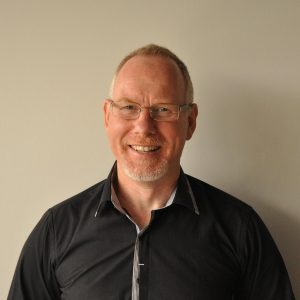Professor Lee Marsden give the context to Donald Trump’s talk at National Prayer Breakfast

The Fellowship Foundation is a controversial organisation which has been portrayed by Jeff Sharlet, investigative journalist and author, as a secretive fundamentalist sect at the heart of government seeking to advance a Christian fundamentalist agenda through prayer cells and networks to bring about its vision for America.
Members of Congress and presidents have considered the Foundation more benign and as facilitating a valuable exchange for secular and faith leaders to meet in nonpartisan setting. Senators John Boozman (R-Ark.) and Chris Coons (D-Del.) who invited Trump consider that:
“This year, following an election that often felt unprecedented in its divisiveness and acrimony, we believe Americans of all backgrounds and faiths will be well-served by an inclusive, positive, forward-looking event that seeks to bring us together”.
The original event was the brainchild of Abraham Vereide, who started prayer groups with senators and congressmen when he moved to Washington DC in 1942. One attendee, Republican Senator Frank Carlson of Kansas, a confidant of President Eisenhower, began organising a prayer breakfast bringing together Congress and the Presidency from 1953.
The highlight of the event is always the presidential speech and the keynote address by a leading political or religious figure announced at the event.
Keynote speakers in the past have included Ben Carson, Trump’s rival for the presidency and the president’s choice as Secretary for Housing and Urban Development who has spoken twice, Mother Teresa, Bono and Tony Blair. The nonpartisan religious gathering has met on the first Thursday in February every year since 1953 and been addressed by all presidents from Eisenhower to Obama. The day is marked by prayer, luncheons and talks and will be attended by King Abdullah of Jordan who will meet with Trump.
The event attracts over three thousand political, cultural and religious leaders from across the United States with international invitees from 130 countries. Traditionally this has provided presidents with an opportunity to reflect on the religious foundations of America. A time to set aside party politics and seek divine guidance about what unites rather than divides America.
This year that might be easier said than done with Trump’s abrasive style and controversial executive order temporarily banning citizens of seven Muslim Majority countries from entering the US, arousing strong emotions across religious and secular communities.
The event has previously attracted controversy with Senator Mark Hatfield (R-OR) using his keynote address in 1973 to condemn the Vietnam War before President Nixon. Barack Obama used his 2015 address to draw comparison between the atrocities perpetrated in the name of Islam by organisations such as ISIS and Christianity’s own chequered past of crusades and slavery:
“And lest we get on our high horse and think this is unique to some other place, remember that during the Crusades and the Inquisition, people committed terrible deeds in the name of Christ. In our home country, slavery and Jim Crow all too often was justified in the name of Christ”
It is doubtful that The Donald will adopt a similar reflexivity.
The National Prayer Breakfast affords an opportunity for the new president to reach out from his Republican base to the rest of America in a spirit of reconciliation and humility, prayerfully seeking answers to the many problems facing the nation. Whether Trump has the temperament to seize such an opportunity is another matter.
Image Credit: Flickr
Lee Marsden is Professor in International Relations at the University of East Anglia





